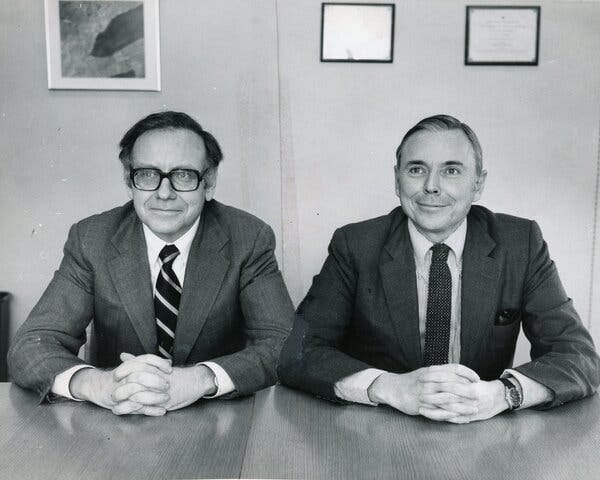The Greatest Investor: Charlie Munger
This quote captures the true essence of Charlie Munger’s knowledge. Partnering with Warren Buffett at Berkshire Hathaway, he helped turn the company into a financial giant. As he is known for his clear thinking and ethical approach, Munger focuses on making smart and long-term decisions.
He believes in buying great companies at fair prices and holding onto them.
This strategy has led to great success for Berkshire Hathaway and has inspired many investors.
His wisdom goes beyond just making money; it's about understanding the world better.:
Bill Gates once said,
"Charlie Munger is truly the broadest thinker I have ever encountered. He sees connections that others miss, whether it's in business, science, philosophy, or history."
Warren Buffett, his lifelong friend and business partner, described him as "the best 30-second mind in the world. He goes from A to Z in one move."
Early Days.
Charlie Munger was born on January 1, 1924, in Omaha, Nebraska. Growing up during the Great Depression taught him the value of hard work and resilience. His father was a lawyer, which gave Charlie a strong respect for the law and a disciplined way of thinking .Though Charlie Munger went on to pursue his education at the University of Michigan, destiny had other plans.
His studies were interrupted by World War II, leading him to join the U.S. Army Air Corps and train as a meteorologist. This experience broadened his perspective and helped him appreciate the importance of different fields of knowledge.
After the war, Charlie continued his education at Harvard Law School, where he graduated with honors. He began his career as a lawyer, co-founding the firm Munger, Tolles & Olson LLP. However, he soon found his true passion in investing. Inspired by Benjamin Graham's book "The Intelligent Investor," he started his own investment firm, Wheeler, Munger & Company.
His firm achieved great success when he introduced a method, called
‘Worldly Wisdom’ which became a key part of his investment philosophy.
(Using knowledge from many different fields to make smart investments)
First Meeting with Warren Buffett.
It was 1959 in Omaha, Nebraska, a town known more for its steak than for being a financial hub. One evening, Warren went to a dinner party hosted by mutual friends. Little did he know, this dinner would change his life forever.
At the party, Warren was introduced to Charlie. They quickly found themselves engrossed in a deep conversation. It was like two sharp minds meeting and instantly clicking.
Warren and Charlie discovered they had a lot in common. They both admired Benjamin Graham, the father of value investing, and shared similar philosophies about money and investing. But there was something about Charlie that intrigued Warren.
Charlie wasn’t just an investor; he was a thinker who combined ideas from various fields – psychology, history, and even architecture – to make investment decisions. This approach was new to Warren, who was used to focusing purely on financial data.
Their conversation that night was filled with laughter, sharp insights, and a mutual admiration that laid the foundation for a strong friendship. They discussed their ideas about life, business, and the importance of ethical behavior. By the end of the evening, Warren knew he had found not just a friend, but a kindred spirit.
As they continued to meet and exchange ideas, Charlie began to influence Warren's thinking more profoundly. He encouraged Warren to look beyond the surface and consider the quality of the businesses they were investing in. Charlie's idea was to buy "wonderful companies at fair prices" rather than just hunting for undervalued stocks. This was a game-changer for Warren, who had been following a more traditional value investing approach until then.
Their partnership officially took shape when Charlie joined Berkshire Hathaway as Vice Chairman in 1978. Together, they transformed the company from a struggling textile business into one of the largest and most successful conglomerates in the world. Their teamwork was seamless – Charlie's broad intellectual curiosity and Warren's razor-sharp focus on investment complemented each other perfectly.
How See's Candies Transformed Warren Buffett and Charlie Munger's Investment Philosophy.
(See’s Candies: a premium candy company)
Berkshire acquired See’s Candy in 1972 for $25 million. In today’s money, this would be worth approximately $155 million. That’s a crazy 520% return.
In the early 1970s, Warren Buffett and Charlie Munger were thinking about buying See's Candies. The company was priced at $25 million and had $10 million in extra cash with $4 million in yearly profits. It seemed like a good deal because it was a well-known brand started by a 70-year-old woman.
But Buffett and Munger were hesitant. They almost walked away from the deal over a $100,000 difference in price.
At the last minute, one of Munger's partners, a petroleum engineer, stepped in. He argued that they were undervaluing See's Candies and urged them to see the bigger picture. His strong belief made Buffett and Munger reconsider, and they decided to go ahead with the purchase.
Munger humorously admitted in an interview that they "barely bought it" when asked about this investment. He said they were barely smart enough to make this easy deal, which teaches an important lesson: “Every day just keep learning”.
Buying See's Candies wasn't just about returns—it changed how Buffett and Munger thought about investing. It taught them to focus on quality businesses with strong brands, use money wisely, and keep things simple. These lessons have been at the heart of their success in building Berkshire Hathaway into a powerhouse of business.
In the end, when The Interviewer asked Munger to share a piece of wisdom from this investment, Munger recalled Buffett's famous advice: "You should always take the high road because it's less crowded." He added that it's highly possible you won't be right all the time, but you can improve over time through rigorous reading and continuous learning.
Charlie Munger's Approach to Life
Charlie Munger's approach to life is grounded in a few key principles:
Preparation, Discipline, Patience, and Decisiveness.
These traits are not just for investing but for how he conducts his entire life. He believes in the power of continuous learning and often quotes his hero, Benjamin Franklin, who was known for his curiosity and diverse interests.
One of Charlie's famous sayings is, "Take a simple idea and take it seriously." He argues that successful investing is merely a byproduct of a well-organized and focused approach to life.
Investment Checklist
Imagine a seasoned pilot, always referring to his checklist before takeoff, no matter how experienced he is. Charlie uses a similar approach to investing. He has a checklist to guide his decisions and avoid mistakes. Here’s how it goes:
1. Measure the risk:
Before investing, understand the risks involved. Avoid deals with shady management and make sure you're compensated for taking on risk. Keep an eye on inflation and interest rates, and stay away from big mistakes that could lead to permanent losses.2. Think independently:
Just because everyone else is doing something doesn't mean it's the right choice. Trust your own analysis and don’t just follow the crowd.3. Be prepared:
Charlie is always learning. He reads a lot and learns from different fields like psychology and history. He believes that hard work and preparation lead to insights.4. Show intellectual humility:
Know what you don’t know. Stick to what you understand and be ready to change your mind when new evidence comes up. Avoid fooling yourself—self-deception is a common trap.5. Practice analytical rigor:
Use the scientific method and checklists to avoid mistakes. Focus on determining value, not just price. Think ahead and consider all possible outcomes.6. Focus on capital allocation:
Your main job is to decide where to put your money. Always measure the potential return of an investment against other opportunities—this is called opportunity cost.
Conclusion
In my own investment journey, I owe a lot to Charlie Munger. His wisdom and principles have shaped my approach to investing and life. His emphasis on continuous learning, ethical behavior, and thorough analysis is something I strive to emulate. What do you think about this newsletter? How has Charlie Munger influenced your thinking?
Disclaimer: If anyone asks me about Munger, I can keep writing and speaking about him non-stop. However, due to limitations, I’m attaching some of my favorite articles and videos about Munger for you to check out.
A Lesson on Elementary Worldly Wisdom As It Relates To Investment Management & Business.
A Story of Courage and Hope from the Life of Charlie Munger.
Paisa, Gyan Aur Zindagi - Charlie Munger!
Bill Gates, Charlie Munger, Warren Buffett on the socialism versus capitalism debate.
Want to Learn Charlie Munger’s Way of Thinking?
As Charlie Munger once said,
"The big money is not in the buying or the selling but in the waiting."
This is Parth Verma,
Signing off.







It’s a great read, shows how good TVS is at researching.
Great read